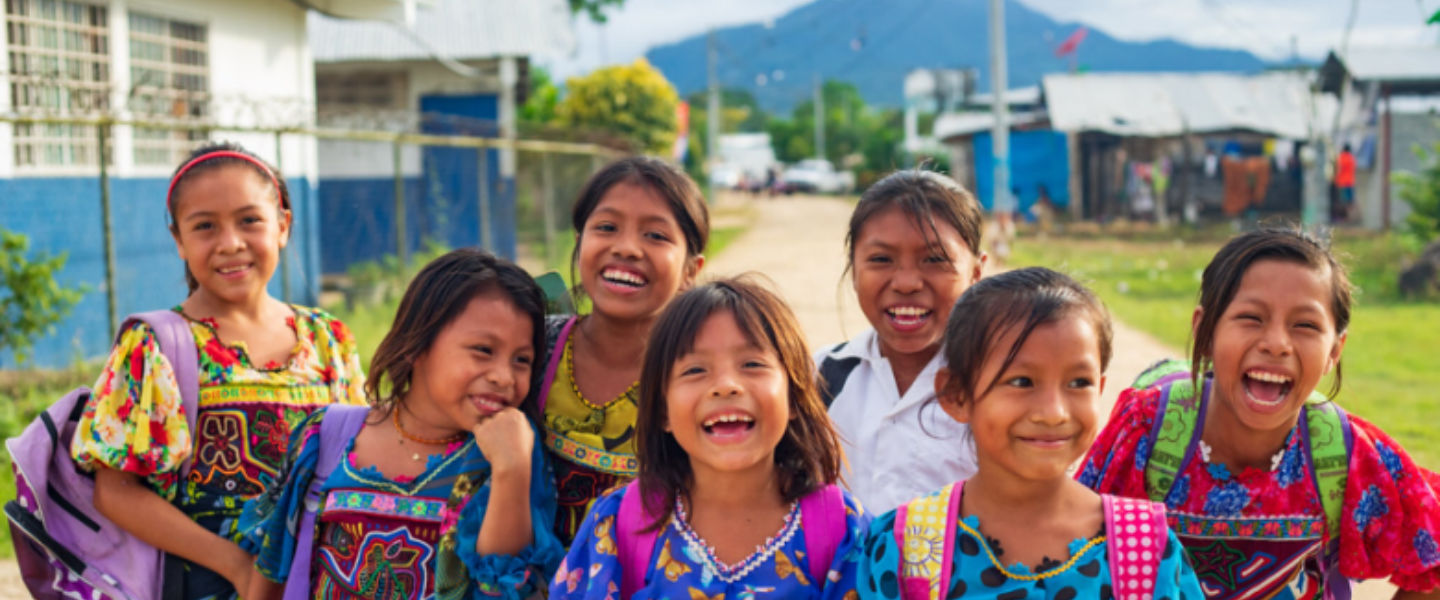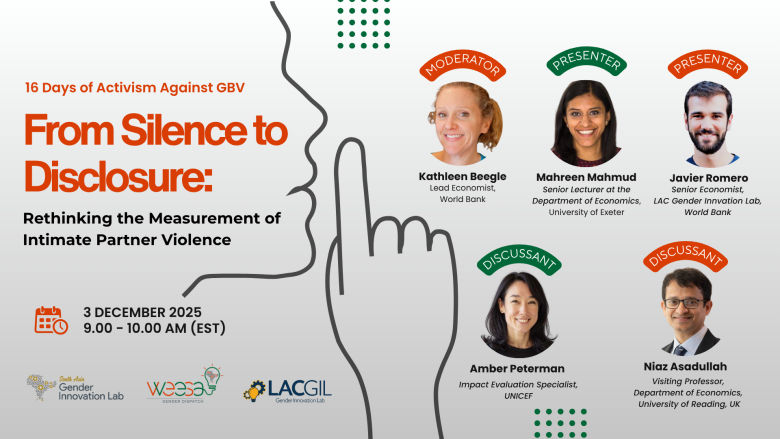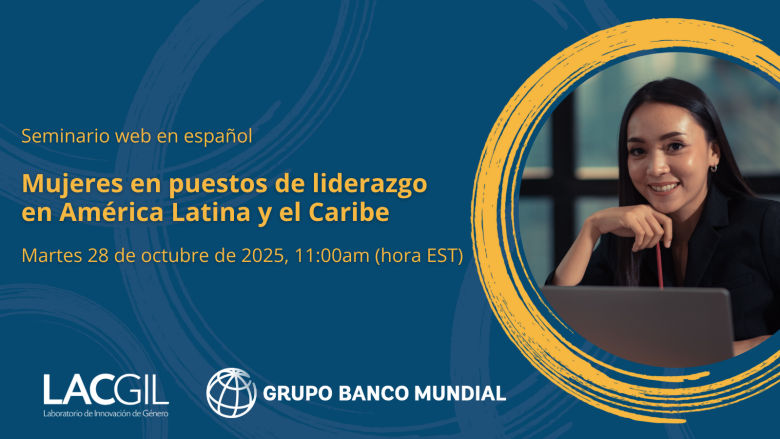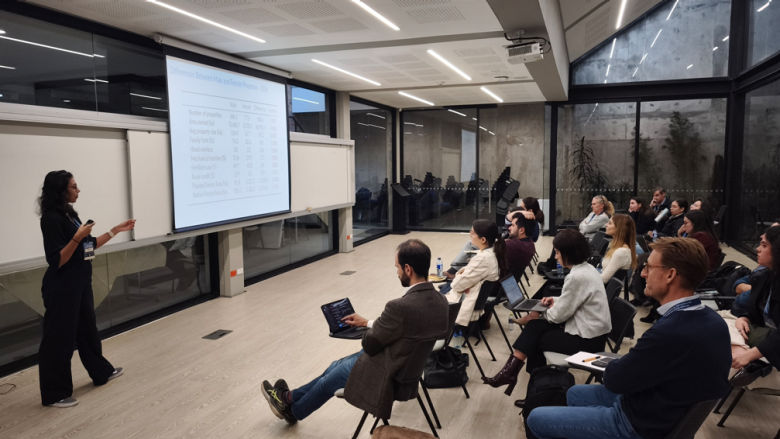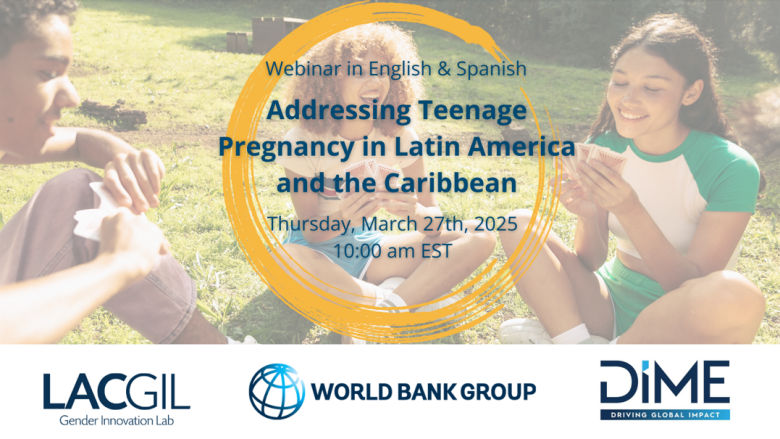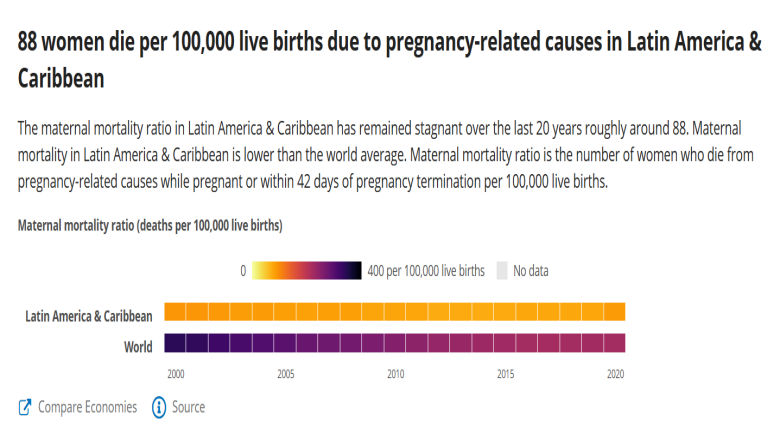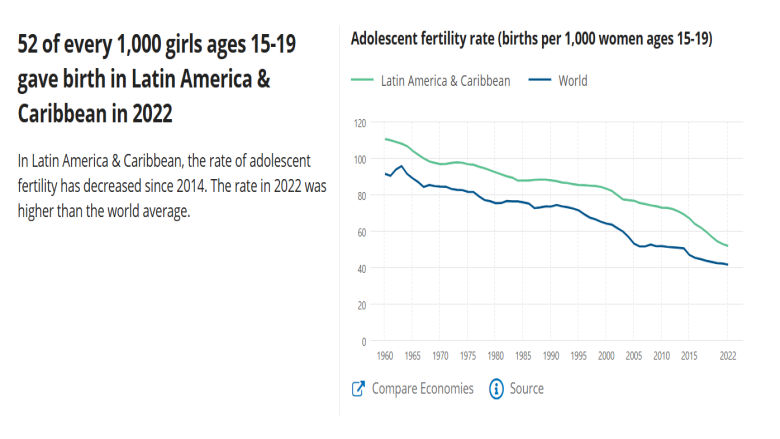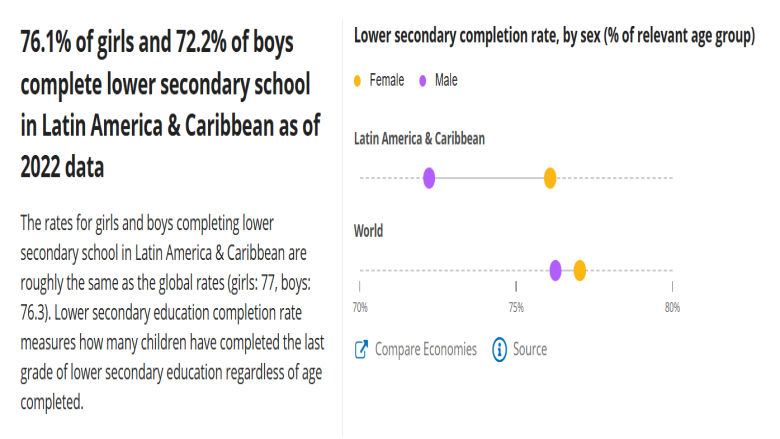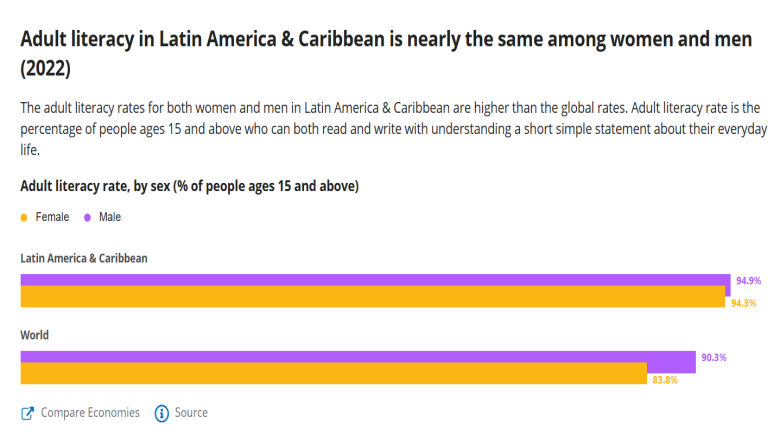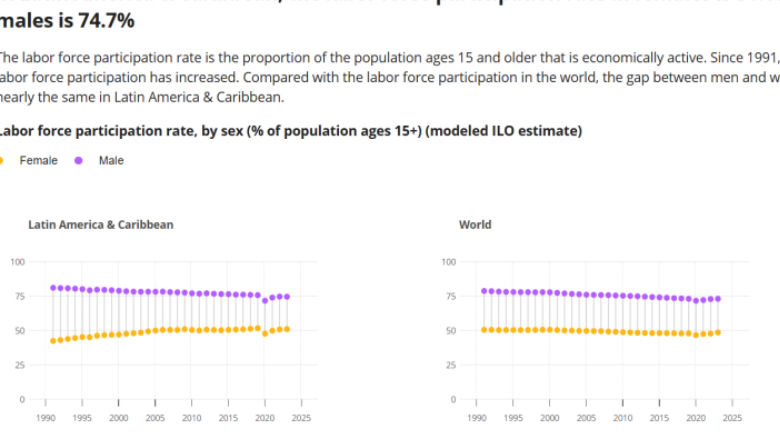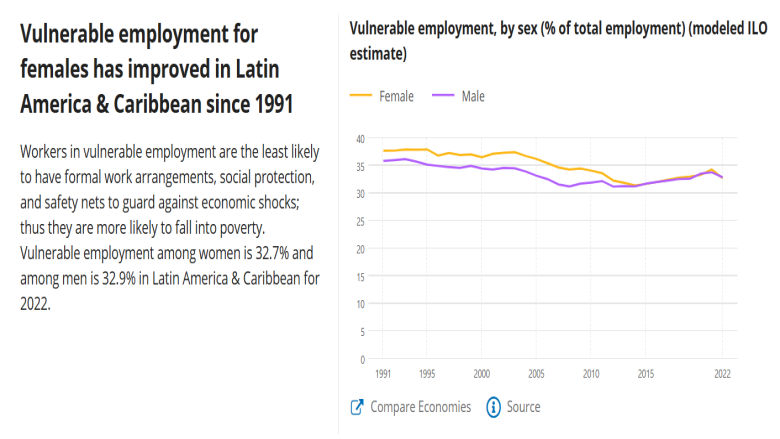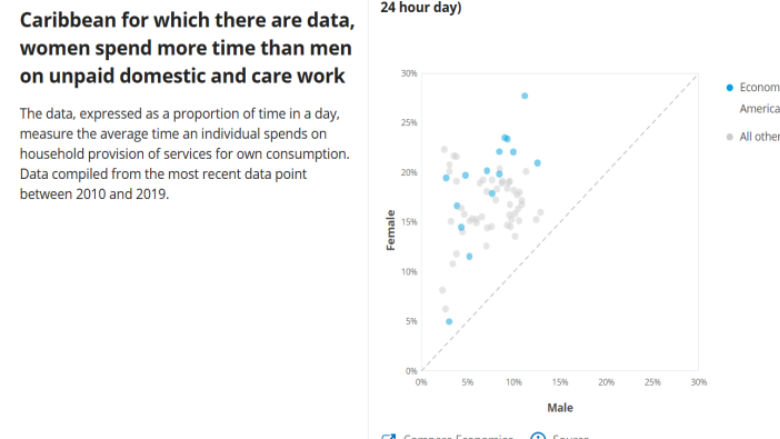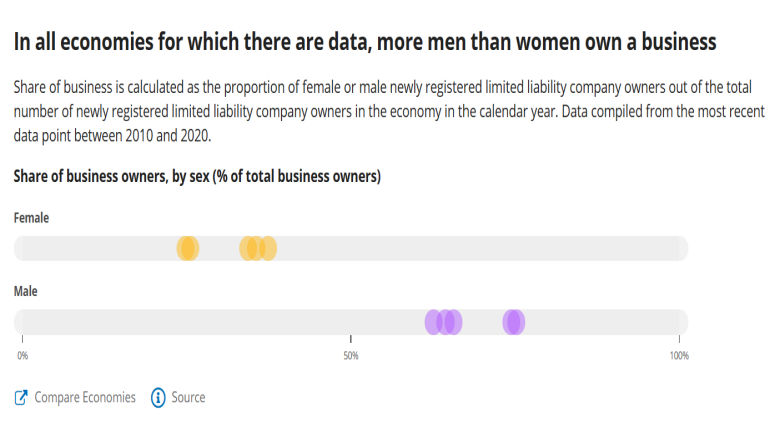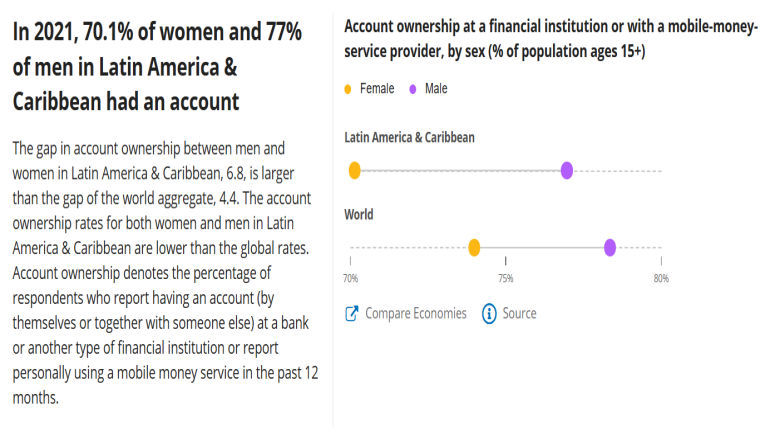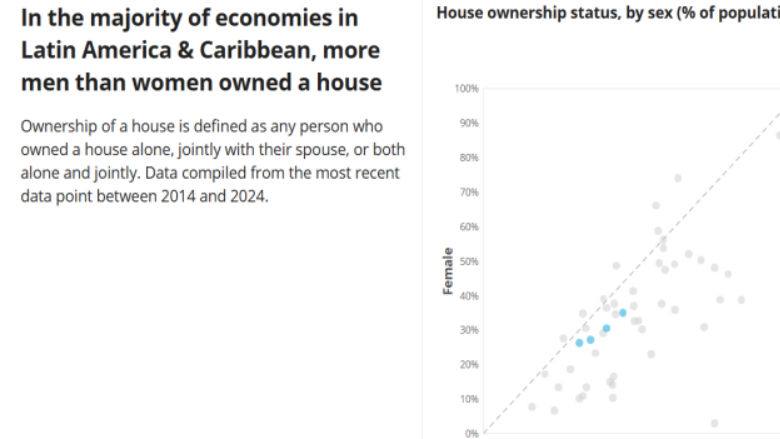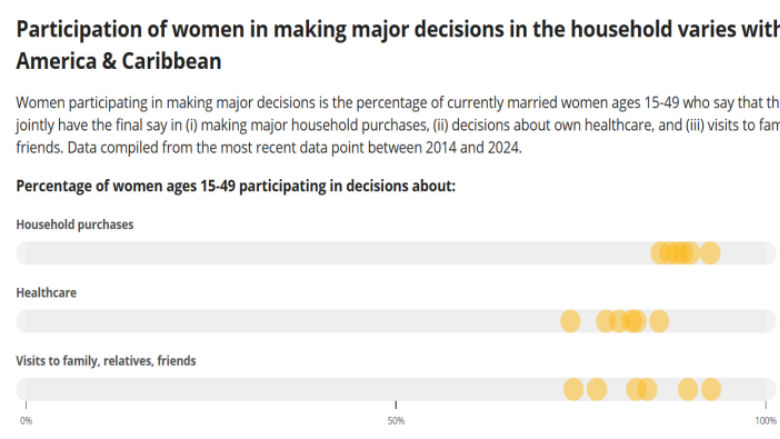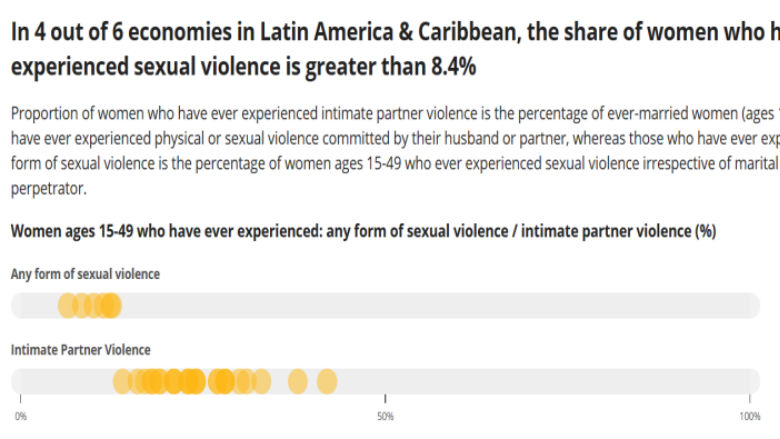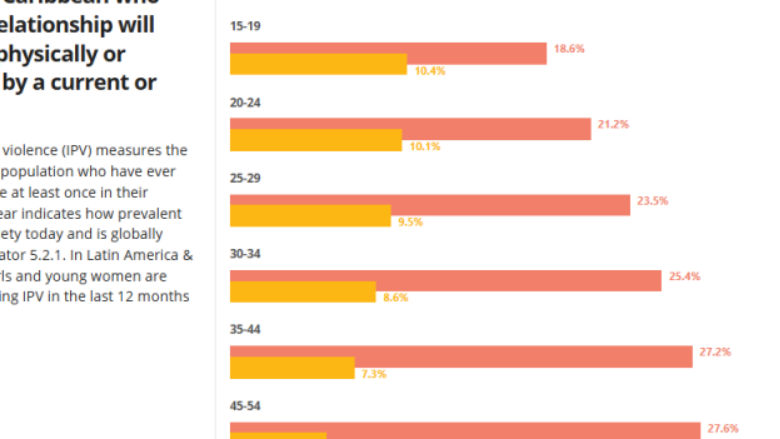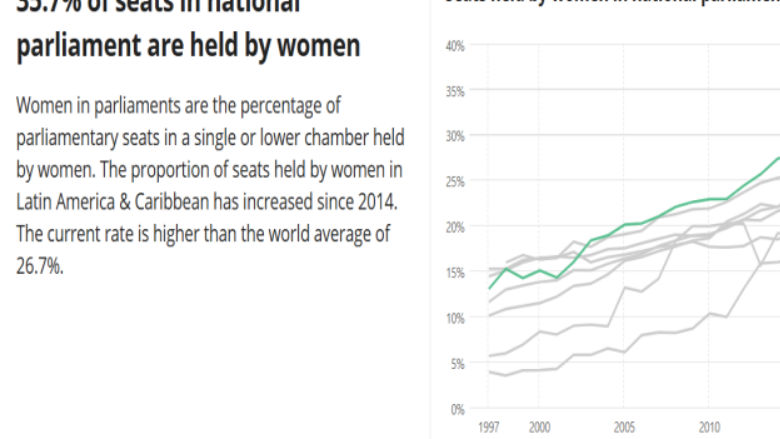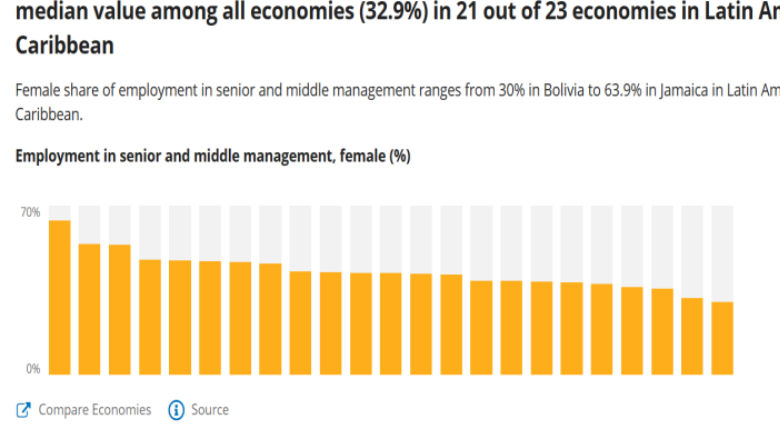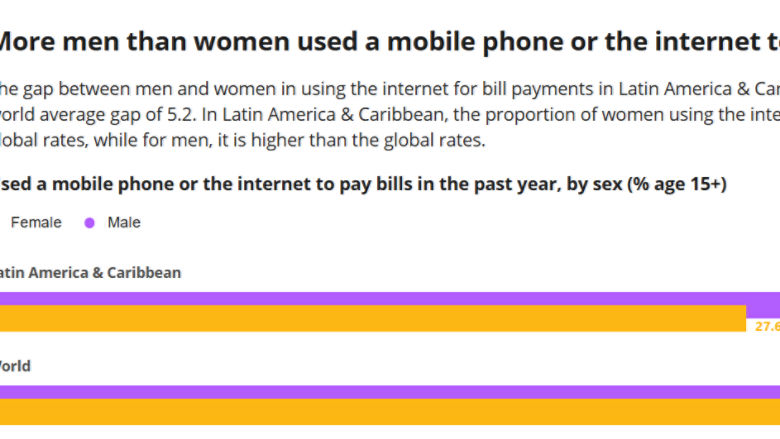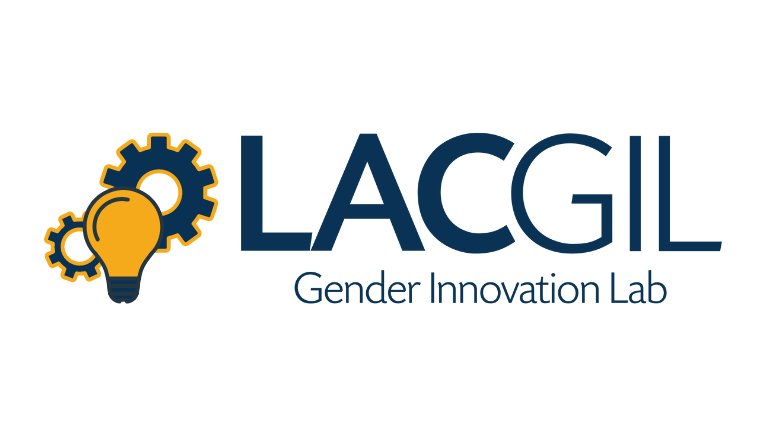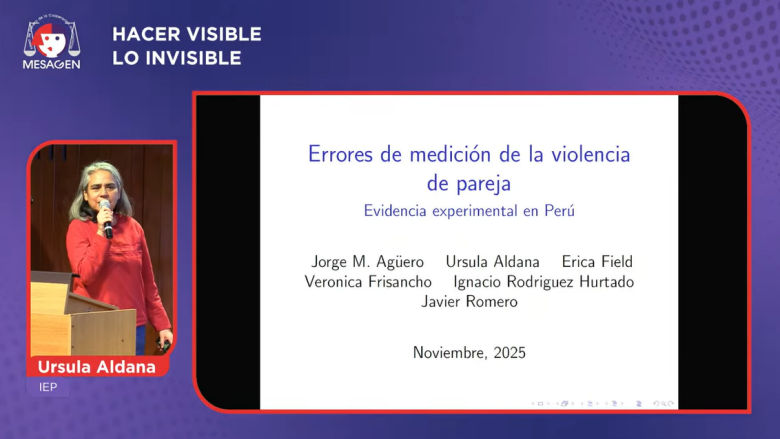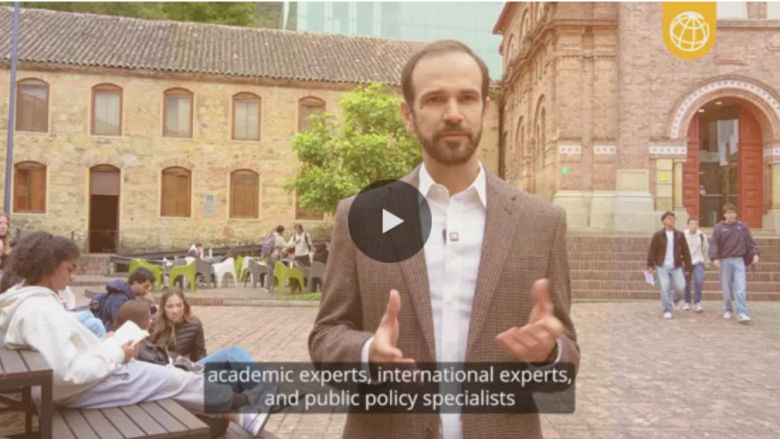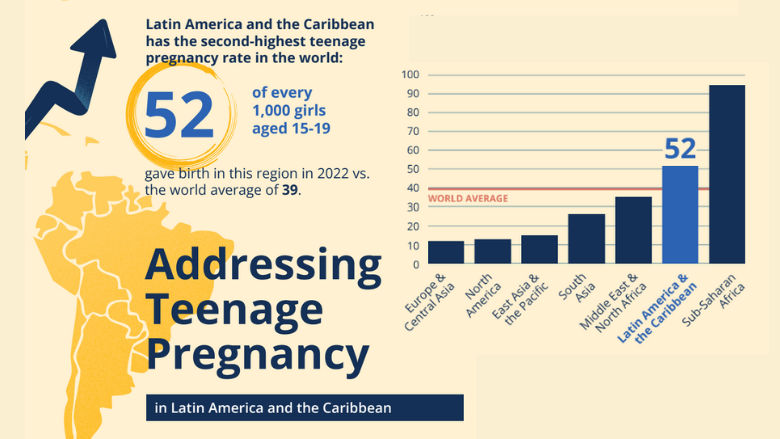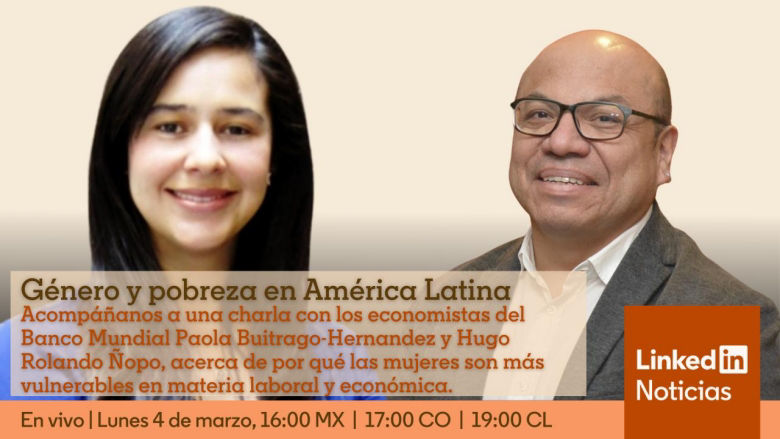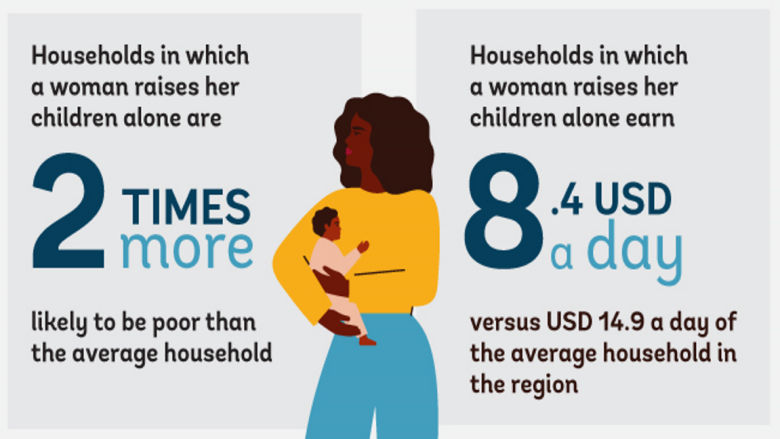-
Latin America and the Caribbean Gender Innovation Lab (LACGIL)
Highlights
-
From Silence to Disclosure: Rethinking the Measurement of IPVWebinar Apr 03, 2025
From Silence to Disclosure: Rethinking the Measurement of IPV
Reporting intimate partner violence is frequently hindered by fear, shame, and concerns about privacy and anonymity. Drawing on new evidence from Pakistan and Peru, this webinar highlights innovative reporting methods.
-
Women in Leadership Positions in LAC (Spanish)Webinar Oct 28, 2025
Women in Leadership Positions in LAC (Spanish)
This session focused on the latest innovative interventions to increase women's participation in leadership positions in the region.
-
Policy Research Workshop: Women and Jobs in LACWorkshop Oct 06, 2025
Policy Research Workshop: Women and Jobs in LAC
This workshop brought together researchers, policymakers, and experts to discuss new evidence and innovative approaches to advance gender equality in the world of work.
-
Panel of experts: Women and Jobs in LACPanel Oct 06, 2025
Panel of experts: Women and Jobs in LAC
Followed by the key presentation by Raquel Fernandez (NYU / WELAC), the panel was moderated by Paca Zuleta (Uniandes).
-
Mapping Childcare in HondurasPolicy Brief May 29, 2025
Mapping Childcare in Honduras
The assessment examines the childcare needs of urban households with children ages under 6 in Honduras by investigating time use, care needs, perceptions, and preferences about care responsibilities.
-
Honduras: Mapping Childcare Programs and Gaps in ProvisionReport May 13, 2025
Honduras: Mapping Childcare Programs and Gaps in Provision
This study examines the care arrangements and needs of urban households with young children in Honduras and measures them relative to the provision of childcare services in the country.
-
Addressing Teenage Pregnancy in Latin America and the CaribbeanWebinar Dec 03, 2025
Addressing Teenage Pregnancy in Latin America and the Caribbean
The objective of this LACGIL webinar was to inform of the latest innovative interventions to reduce teenage pregnancy in the region, such as an innovative peer-led intervention in Brazil.
LAC Indicators
-
88 women die per 100,000 live births due to pregnancy-related causes in LACIndicator
88 women die per 100,000 live births due to pregnancy-related causes in LAC
The maternal mortality ratio in Latin America & Caribbean has remained stagnant over the last 20 years roughly around 88.
-
52 of every 1,000 girls ages 15-19 gave birth in LAC in 2022Indicator
52 of every 1,000 girls ages 15-19 gave birth in LAC in 2022
In Latin America & Caribbean, the rate of adolescent fertility has decreased since 2014. The rate in 2022 was higher than the world average.
-
76.1% of girls and 72.2% of boys complete lower secondary school in LAC (2022)Indicator
76.1% of girls and 72.2% of boys complete lower secondary school in LAC (2022)
The rates for girls and boys completing lower secondary school in Latin America & Caribbean are roughly the same as the global rates (girls: 77, boys: 76.3).
-
Adult literacy in LAC is nearly the same among women and men (2022)Indicator
Adult literacy in LAC is nearly the same among women and men (2022)
The adult literacy rates for both women and men in Latin America & Caribbean are higher than the global rates.
-
The labor force participation rate in females is 51.1% and in males is 74.7%Indicator
The labor force participation rate in females is 51.1% and in males is 74.7%
The labor force participation rate is the proportion of the population ages 15 and older that is economically active.
-
Vulnerable employment for females has improved in LAC since 1991Indicator
Vulnerable employment for females has improved in LAC since 1991
Vulnerable employment among women is 32.7% and among men is 32.9%.
-
Women spend more time than men on unpaid domestic and care workIndicator
Women spend more time than men on unpaid domestic and care work
The data, expressed as a proportion of time in a day, measure the average time an individual spends on household provision of services for own consumption.
-
In all economies for which there are data, more men than women own a businessIndicator
In all economies for which there are data, more men than women own a business
Share of business is calculated as the proportion of female or male newly registered limited liability company owners out of the total number of newly registered limited liability company owners.
-
In 2021, 70.1% of women and 77% of men in LAC had an accountIndicator
In 2021, 70.1% of women and 77% of men in LAC had an account
The gap in account ownership between men and women in LAC, 6.8, is larger than the gap of the world aggregate, 4.4.
-
In the majority of economies in LAC, more men than women owned a houseIndicator
In the majority of economies in LAC, more men than women owned a house
Ownership of a house is defined as any person who owned a house alone, jointly with their spouse, or both alone and jointly.
-
Participation of women in making major decisions in the household variesIndicator
Participation of women in making major decisions in the household varies
Currently married women ages 15-49 who say that they alone or jointly have the final say in (i) making major household purchases, (ii) decisions about own healthcare, and (iii) visits to family, relatives, friends.
-
The share of women who have experienced sexual violence is greater than 8.4%Indicator
The share of women who have experienced sexual violence is greater than 8.4%
Proportion of women who have ever experienced intimate partner violence is the percentage of ever-married women (ages 15 - 49) who have ever experienced physical or sexual violence committed by their husband or partner.
-
Adolescent girls and young women are more at risk of experiencing IPVIndicator
Adolescent girls and young women are more at risk of experiencing IPV
By the time they are 19 years old, roughly 1 in 5 adolescent girls from LAC who have been in a relationship will have ever been physically or sexually abused by a current or former partner.
-
35.7% of seats in national parliament are held by womenIndicator
35.7% of seats in national parliament are held by women
Women in parliaments are the percentage of parliamentary seats in a single or lower chamber held by women. The proportion of seats held by women in LAC has increased since 2014.
-
Female share of employment in senior & middle management ranges from 30 to 63.9%Indicator
Female share of employment in senior & middle management ranges from 30 to 63.9%
Share of women employed in senior and middle management was greater than the median value among all economies (32.9%) in 21 out of 23 economies in LAC.
-
More men than women used a mobile phone or the internet to pay bills (2021)Indicator
More men than women used a mobile phone or the internet to pay bills (2021)
In LAC, the proportion of women using the internet for bill payments is lower than the global rates, while for men, it is higher than the global rates.
-
About the LACGIL
The LAC Gender Innovation Lab provides World Bank operational teams, policy makers, and development practitioners with knowledge to promote gender equality and drive change in Latin America and the Caribbean.
-
Gender Innovation Lab Federation
Gender Innovation Lab Federation
The Gender Innovation Lab Federation brings together the five World Bank Regional Gender Innovation Labs (GIL): Africa (AFRGIL), East Asia and Pacific (EAPGIL), Latin America & Caribbean (LACGIL), Middle East & North Africa (MNAGIL), South Asia (SARGIL).
Multimedia
-
Making the invisible visible: Data to end gender violence in PeruVideo (in Spanish) Nov 21, 2025
Making the invisible visible: Data to end gender violence in Peru
Ursula Aldana presented the LACGIL paper on Improving measurement of intimate partner violence at a panel organised by the CMU Peru and the Mesa de Género de la Cooperación Internacional (MESAGEN).
-
Policy Research Workshop: Women and Jobs in Latin America and the CaribbeanVideo Oct 06, 2025
Policy Research Workshop: Women and Jobs in Latin America and the Caribbean
On October 6th & 7th, 2025, Universidad de los Andes (Colombia), in collaboration with the World Bank, through its LACGIL and the CRWJ, hosted the Policy Research Workshop on Women and Jobs in LAC, in Bogotá, Colombia.
-
Panel of experts: Women and Jobs in LACPanel Oct 06, 2025
Panel of experts: Women and Jobs in LAC
Followed by the key presentation by Raquel Fernandez (NYU / WELAC), the panel was moderated by Paca Zuleta (Uniandes).
-
Addressing Teenage Pregnancy in Latin America and the CaribbeanInfographic Mar 26, 2025
Addressing Teenage Pregnancy in Latin America and the Caribbean
Latin America and the Caribbean has the second-highest teenage pregnancy rate in the world: 52 of every 1,000 girls aged 15-19 gave birth in this region in 2022 vs. the world average of 39.
-
Gender and poverty in Latin America, a conversation with the World BankVideo Mar 01, 2024
Gender and poverty in Latin America, a conversation with the World Bank
LinkedIn noticias América Latina spoke with Paola Buitrago-Hernandez and Hugo Rolando Ñopo Aguilar, economists from the World Bank, about gender and poverty in Latin America.
-
Six facts to understand the reality of women in Latin America and the CaribbeanInfographic Feb 27, 2024
Six facts to understand the reality of women in Latin America and the Caribbean
Women between 25 and 35 years of age are 7 percentage points more likely to be poor than men of the same age.
